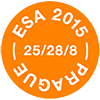|
RN coordinator: Bernd Brandl, University of York, York, UK bernd.j.brandl(at)gmail.com Valeria Pulignano, Katholieke Universiteit Leuven, Belgium valeria.pulignano(at)soc.kuleuven.be
Inequality and differences are core themes for the field of work, employment and industrial relations. Consequently there is a long tradition in research on this theme. In fact seminal and foundational research in the field of work, employment and industrial relations in the late 19th century was stipulated by the existence of differences and inequalities in the society. Because of the existence of high inequality and differences in the economy and society at that time, industrial relations was concerned with concepts of “solidarity” and “fairness” and early work in the field aimed to make the ‘world of work’ a more equal and fair place. However, much has changed since then. The institutions, actors and process of how the relationship between labour and capital is organised transformed along changing societies and economies. Many changes in the past decades and in particular since the advent of the current economic crisis led to a shift in the “power relationship” between the “labour” to the “capital” side. The relative “power” of “capital” increased steadily and significantly. Along with this shift in power came an increase in inequality. This increasing inequality is a multi-dimensional phenomenon. It includes the fact that capital owners became “richer” (and richer) and workers “poorer” (and poorer). It also includes that among the “work force” differences and inequalities increased. As a matter of fact inequality increased within the “labour” side as different groups experienced different developments. There are winners and losers of past developments. The bottom line is that differences and inequalities increased in different forms and directions. As regards the transformation of work and employment, past developments had two components. A “deepening” component characterized by the emergence of a new deep divide between countries that seem trapped in a downward spiral of falling output, massively rising unemployment and eroding disposable incomes and those that have at least so far shown some resilience – partly thanks to better functioning labour markets and more robust welfare systems. However there is uncertainty about their capacity to resist continuing economic pressures. Additionally, the changing socio-economic environment has not impacted uniformly across the whole population and has often led to an even worse situation for groups already at heightened risk, notably young adults, children, migrants and women, thus contributing to social polarization and rising social inequality. This can be defined as the “widening” component of the process of employment and social divergence. Also, from a European perspective differences between countries increased, most notably between the European “North” and the European “South”. While in the Northern countries the world of work and employment coped with the changing situation relatively well, many southern European countries faced dramatic changes. Among the latter changes in many southern European countries are the reforms ‘enforced’ by the Troika not only on working and employment conditions (and the labour market) but also on the institutions of the labour market, i.e. on industrial relations. Given the overall theme of the ESA Prague conference and similar to previous conferences, RN17 aims to explore differences and similarities in work, employment and industrial relations. At the 2015 conference we encourage further and new approaches regarding the role of differences and inequalities in the fields of work, employment and industrial relations. Different, innovative and critical answers are welcome in order to stipulate new, controversial and alternative imaginations. In order to explore the overall theme of the conference as well as many other current debates in the field of work, employment and industrial relations, the call for papers of the RN17 intends to invite all researchers in the diverse fields of sociology of work and labour for presentation on the following or other themes: |
We expect to receive theoretical and empirical (both qualitative and quantitative) papers. Cross-national papers are especially welcome. |
|
Notes for authors Authors are invited to submit their abstract either to the general session or any specific session. Please submit only to one session. After abstract evaluation, coordinators will have the chance to transfer papers between sessions where applicable. Abstracts should not exceed 250 words. Each paper session will have the duration of 1.5 hours. Normally sessions will include 4 papers. Abstracts must be submitted online to the submission platform, see below. Abstracts sent by email cannot be accepted. Abstracts will be peer-reviewed and selected for presentation by the Research Network; the letter of notification will be sent by the conference software system in early April 2015. Abstract submission deadline (extended): 15th February 2015 Abstract submission platform: www.esa12thconference.eu |
|
If you have further questions on the conference, please visit the conference website. For further information on the Research Network, please visit www.europeansociology.org. |






